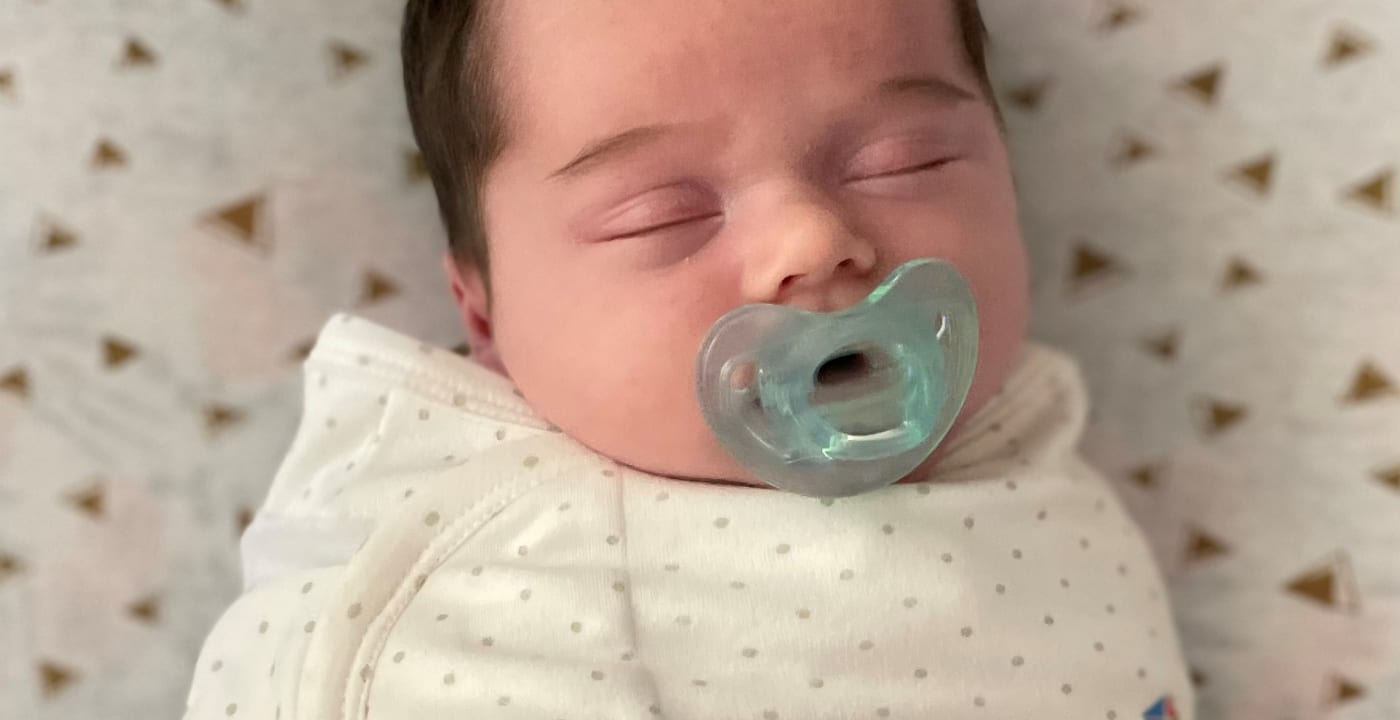Nursing pillows not safe for sleeping infants

A new investigative report by NBC News calls attention to the importance of safe infant sleep practices, reporting a shocking number of preventable deaths of infants sleeping with nursing pillows.
According to the American Academy of Pediatrics (AAP), babies sleep safest on a firm, flat, non-inclined surface.
Nursing pillows are not flat and can cause suffocation by blocking the infant’s mouth and nose, or positional asphyxia by dropping their chin to their chest, compromising their airway.
Federal regulations were tightened last year, with a ban on unsafe sleep products like inclined sleepers and crib bumpers. But many products remain on the market, including some — like nursing pillows — that may be safe when used as directed (to support a caregiver’s arms while feeding) but are not designed to be slept on or next to.
Keep your baby safe by following these updated (2022) safe sleep guidelines from the AAP:
- Place baby on their back for every sleep session, including naps.
- Use a firm, flat, non-inclined sleep surface — a crib, bassinet or pack-and-play that meets current federal safety standards.
- Place the crib/bassinet in parents’ room for at least the first six months.
- Never let babies sleep on an adult bed, a couch/chair or a surface that raises their head. If your baby falls asleep while in their car seat, take them out as soon as you arrive at your destination.
- Keep soft objects away from baby’s sleep area — no blankets, pillows, bumpers, soft toys, mattress toppers, fur-like materials, etc.
- Offer a pacifier while baby is falling asleep.
- Dress baby in layers for warmth (instead of using blankets) but watch for overheating — keep hats off for sleep and dress them in only one more layer than you would need.
- Wearable blankets or sleep sacks are a helpful top layer but avoid products that restrict baby’s movement. Weighted sleep sacks (or anything that puts weight on their chest) are not safe.
- Stop swaddling for sleep once your baby shows signs of attempting to roll from back to tummy, typically by 2-4 months old.
The AAP adds the following recommendations beyond the safe sleep environment, as they can also reduce sleep-related death in infants:
- Breastfeed baby if you can; the longer the better.
- Do not expose baby to smoke/nicotine. Smoking one cigarette per day in pregnancy doubles baby’s risk of death from sudden infant death syndrome (SIDS).
- Avoid alcohol, marijuana, opioids and illicit drugs during and after pregnancy.
- Obtain regular prenatal care.
- Vaccinate your baby on schedule.
- Provide supervised awake “tummy time” starting when you are home from the hospital and work your way up to 15-30 minutes daily by seven weeks.
- Do not use at-home devices that claim to monitor baby’s heart rate or breathing, as they are unreliable and known to alarm when nothing is wrong, while also missing legitimate cardiorespiratory events.
- Remember that babies are sensitive to routine, so your best bet is to establish safe routines with your newborn right away, as sleep difficulties are easier to prevent than they are to solve.
Safe sleep is not always easy, but your baby is worth the effort. If you are struggling, reach out to your pediatric provider for support and resources, or contact our MultiCare Mary Bridge Children’s Center for Childhood Safety educators at [email protected].




